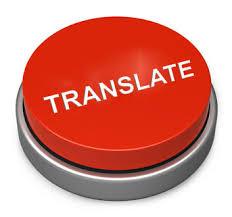Diversity of Arabic dialects, accents a challenge to translators
The diverse and multiple dialects and accents in the Arabic language represent a serious challenge when it comes to translating a text from Arabic to English.
There are 22 Arabic speaking countries in the Middle East and North Africa region. The language spoken and written in some of these countries, compared with some others, can sometimes be quite different.
There are various reasons as to why this is the case, such as the impact of local deep-rooted culture, colonisation, among other reasons. Broadly speaking, the language written in, for instance, in Egyptian, Saudi, Emirati newspapers is discernibly different from the language used in newspapers or magazines published in some North African countries such as Morocco or Algeria.
Perhaps the best way to point this out further is to draw a line between the Arabic language, as spoken and written, in the Arab Maghreb and the Arab Mashreq.
This is quite a challenge to any Arabic-English translator, which faces a greater hurdle with the use of multiple dialects event within the same country.
A translator from the east (including Egypt and any Gulf state) would probably find it hard to figure out (or mistranslate) some words used by journalists or writers in Morocco, Tunisia or Algeria.
The word مجلة , for instance, in the Arab Mashreq is known to refer to a magazine (press).
However, the same exact word is used in Tunisia to refer to “law”, which is referred to in the Arab Mashreq as قانون.
There are a myriad of examples of Arabic words which have completely different meanings depending on the country.
Lack of awareness of such words or failure to exercise questioning and due diligence when translating an Arabic text to English often results in mistranslation.
If we take the example above, we may find a novice Arabic translator rendering مجلة الأحوال الشخصية in Tunisia as “Personal Status Magazine”, while in fact it should be rendered as “Personal Status Law”.
Knowledge of these tricky words and the different meanings and shades of meanings of words used in different Arab countries is essential for anyone who would like to translate an Arabic-language text to English in a professional way. It is necessary that any Arabic translator equips themselves with this knowledge.
Have a text and worried it will be mistranslated because of Arabic dialects and accents? Let’s help you with our professional and expert Arabic translation services which are delivered by specialist native translators who are fully aware of the impact of different accents and dialects. Our Arabic to English translation services are second to one, affordable, fast and great value for money.
